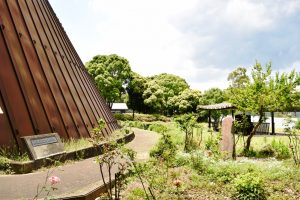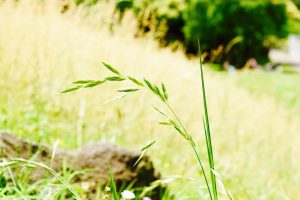Yesterday, we went to Yumenoshima (Dream Island) to visit the Daigo Fukuryu Maru Museum (Lucky Dragon 5). The land we walked on was made from compacted trash; even with the construction, however, the region is where I got some of my best #nature shots.
The reading emphasized the tragedy from multiple perspectives including the people, media, governments, and scientists/doctors. This shows that science is not neutral or apolitical. Personal interests for fame, as well as control of the information, play huge roles in the direction and goals of the research. The other reading spoke to the “waste” attitude. I feel extremely conscious about our decisions to use convenient plastic containers daily despite being on a trip called Japan and the Environment.
First, the presentation of the World War II history and nuclear testing. While the incident does not directly relate to the imperialistic Japan, there is a panel talking about Japan’s possession/occupation of some Pacific Ocean islands before the war. Those islands were later occupied by US forces and used for nuclear testing. The museum, run by the Metropolitan Government of Tokyo, obviously had a specific agenda to educate a certain version of history (the other group there yesterday were a huge group of middle schoolers). According to Amano-san, the layout of the museum, including an almost identical timeline of nuclear testing by country, mirrored the exhibits at Hiroshima and Nagasaki Museums. The integrated pictures of the victims are used to draw sympathy/empathy from the viewers. On the other hand, the massive amounts of scientific data and historical information give legitimacy to the claims and hold a very standardized authoritative voice. Additionally, the prevalence of cranes and signature books exist in these museums, which leads to my next point. There are some signs of activism and treaties, but these are all very vague. The museum doesn’t answer the question of what an average civilian, like me, can do. The power represented seems such a centralized attitude: a few making decisions for the rest of the world. I understand that these are big questions that may be difficult to answer, but I hope that these questions can be brought to conscious thoughts and trigger more people to be more involved.



